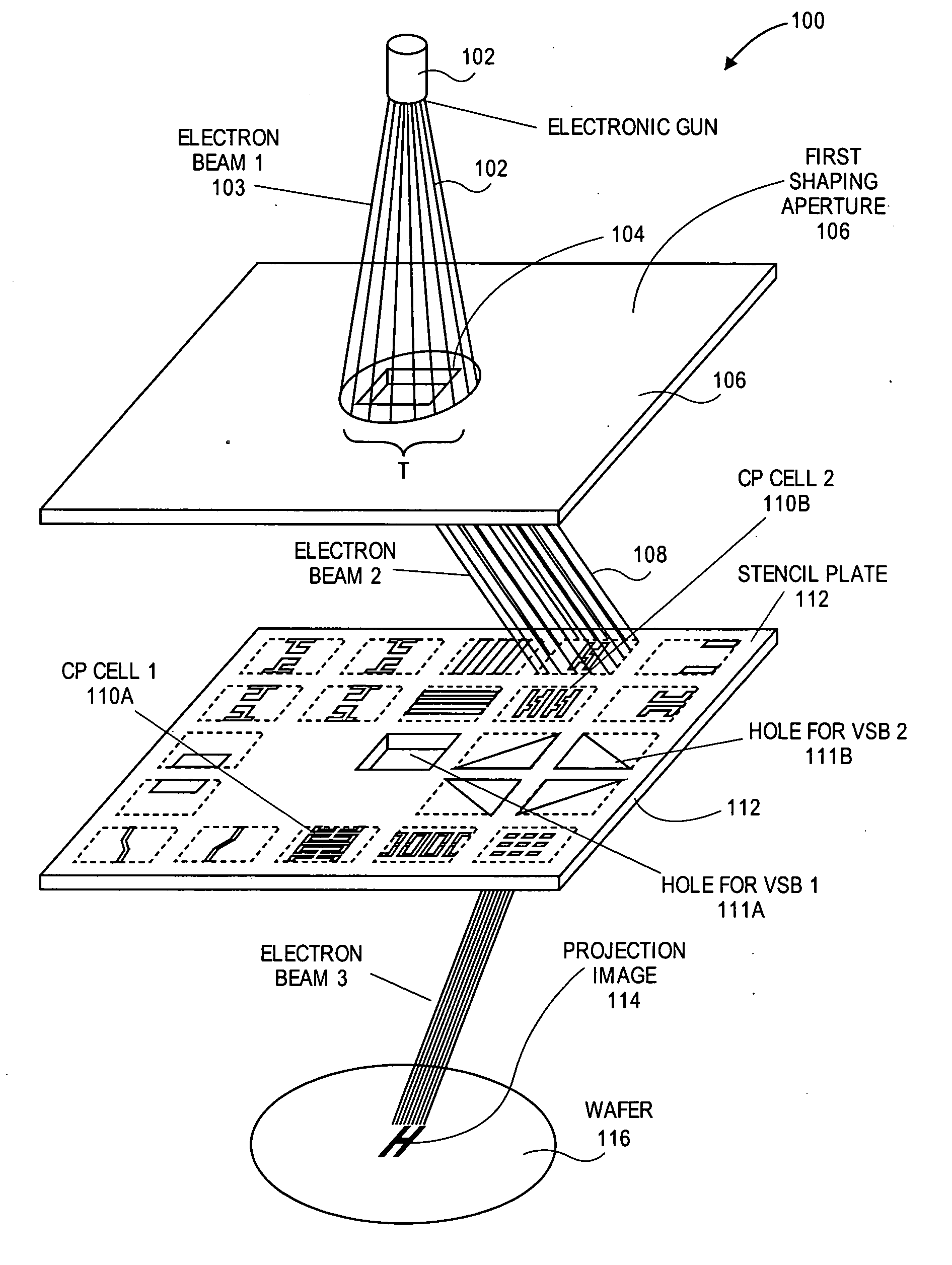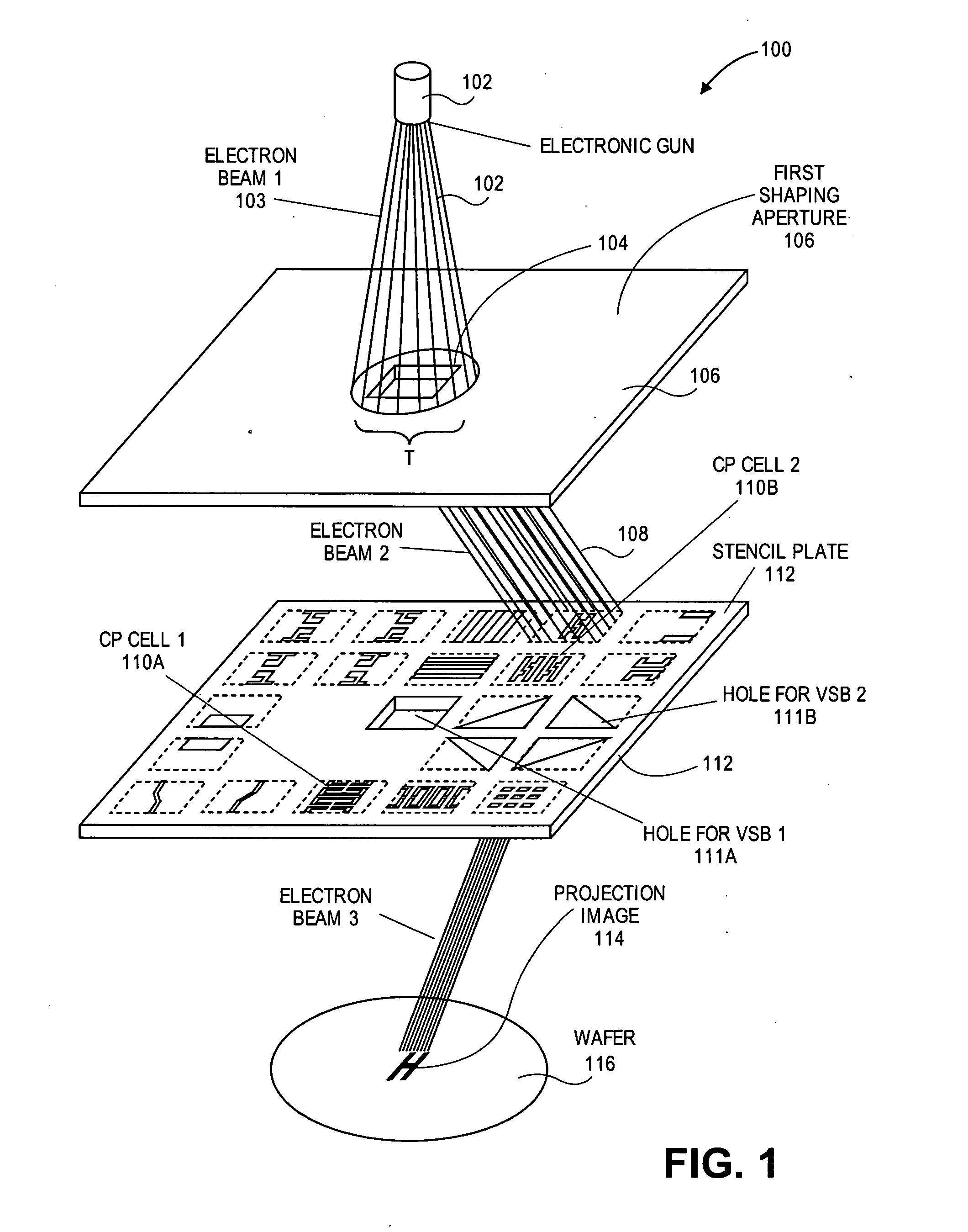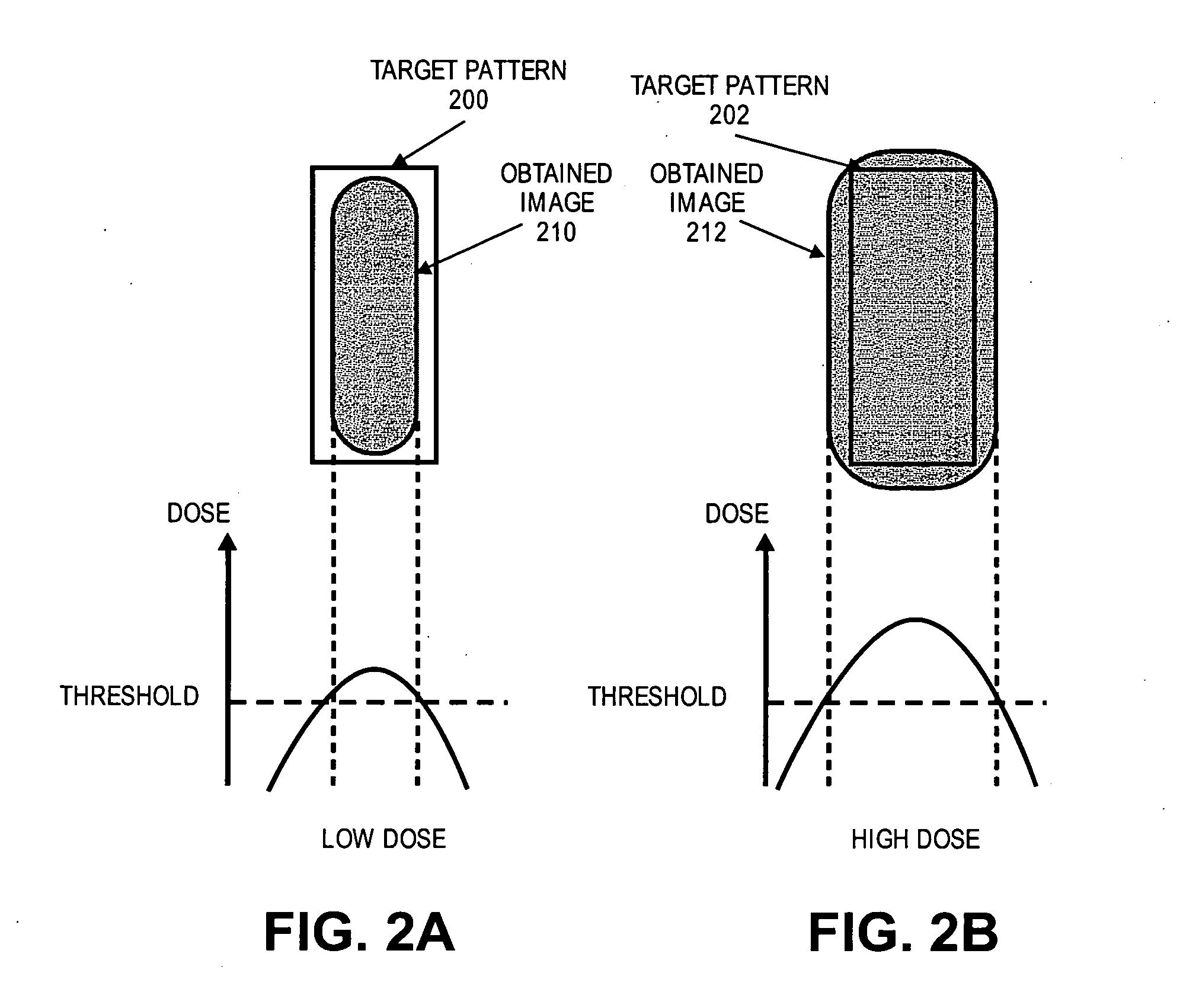Method and system for proximity effect and dose correction for a particle beam writing device
a particle beam and proximity effect technology, applied in the field of particle beam writing and lithograph technologies, can solve the problems of image quality degradation and resolution limits, degradation or difference between obtained image and intended pattern, and limited size of cp cells on stencil plates,
- Summary
- Abstract
- Description
- Claims
- Application Information
AI Technical Summary
Benefits of technology
Problems solved by technology
Method used
Image
Examples
Embodiment Construction
[0070]Various embodiments of the invention are described herein with reference to the drawings. It should be noted that the drawings are not drawn to scale and that elements of similar structures or functions are represented by like reference numerals throughout the drawings.
[0071]In one embodiment, the invention uses both proximity effect correction by pattern modification and proximity effect correction by dose. A first step of this procedure matches an assumed dose quantity for PEC by pattern modification to the threshold of deposit energy that determines appearance of lithography pattern. In a next step, PEC by pattern modification is applied to CP cells. The following steps will be done for all polygons in a CP cell of interest.
[0072](1) A polygon is broken into a set of line segments that are boundaries of the polygon.
[0073](2) Evaluation points are set on the segments so that differences between target and obtained value of deposit energy at the evaluation points can be calcu...
PUM
 Login to View More
Login to View More Abstract
Description
Claims
Application Information
 Login to View More
Login to View More - R&D
- Intellectual Property
- Life Sciences
- Materials
- Tech Scout
- Unparalleled Data Quality
- Higher Quality Content
- 60% Fewer Hallucinations
Browse by: Latest US Patents, China's latest patents, Technical Efficacy Thesaurus, Application Domain, Technology Topic, Popular Technical Reports.
© 2025 PatSnap. All rights reserved.Legal|Privacy policy|Modern Slavery Act Transparency Statement|Sitemap|About US| Contact US: help@patsnap.com



